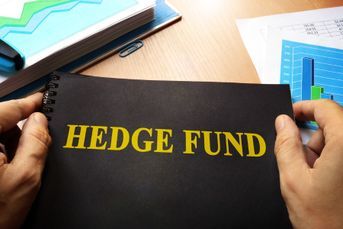Biden eyeing capital gains tax rate as high as 43.4% for wealthy

The administration reportedly is considering boosting the tax rate on the capital gains to 39.6% from the current base rate of 20%.
President Joe Biden will propose almost doubling the capital gains tax rate for wealthy individuals, to 39.6%, to help pay for a raft of social spending that addresses long-standing inequality, according to people familiar with the proposal.
For those earning $1 million or more, the new top rate, coupled with an existing surtax on investment income, means that federal tax rates for wealthy investors could be as high as 43.4%. The new marginal 39.6% rate would be an increase from the current base rate of 20%, the people said on the condition of anonymity because the plan is not yet public.
A 3.8% tax on investment income that funds Obamacare would be kept in place, pushing the tax rate on returns on financial assets higher than rates on some wage and salary income, they said.
Stocks slid the most in more than a month on the news, with the S&P 500 Index down 0.7% as of 2:57 p.m. after climbing 0.2% earlier. Ten-year Treasury yields erased gains.
The proposal could reverse a long-standing provision of the tax code that taxes returns on investment lower than wages. Biden campaigned on equalizing the capital gains and income tax rates for wealthy individuals, saying it’s unfair that many of them pay lower rates than middle-class workers.
White House Press Secretary Jen Psaki, asked about the capital-gains plan at a press briefing Thursday, said, “we’re still finalizing what the pay-fors look like.” Biden is expected to release the proposal next week as part of the tax increases to fund social spending in the forthcoming “American Families Plan.”
Other measures that the administration has discussed in recent weeks include enhancing the estate tax for the wealthy. Biden has warned that those earning over $400,000 can expect to pay more in taxes. The White House has already rolled out plans for corporate tax hikes, which go to fund the $2.25 trillion infrastructure-focused “American Jobs Plan.”
[More: Biden tax hikes dominate adviser-client discussions]
Republicans have insisted on retaining the 2017 tax cuts implemented by former President Donald Trump, and they have argued that the current capital-gains framework encourages saving and promotes future economic growth.
“It’s going to cut down on investment and cause unemployment,” Chuck Grassley of Iowa, a top Republican on the Senate Finance Committee and former chair of that panel, said of the Biden capital gains plan. He lauded the result of the 2017 tax cuts, and said, “If it ain’t broke, don’t fix it.”
On Thursday, GOP lawmakers called for repurposing previously appropriated, unused pandemic relief funds to help pay for their counteroffer infrastructure plan. The group underlined opposition to tax hikes, other than a potential revamp of the levies that go toward highway funding in a way that would cover electric vehicles.
[More: House bill would adjust retirees’ capital gains tax for inflation]
Biden will detail the American Families Plan in a joint address to Congress next Wednesday. It is set to include a wave of new spending on children and education, including a temporary extension of an expanded child tax credit that would give parents up to $300 a month for young children or $250 for those six and older.
The capital gains increase would raise $370 billion over a decade, according to an estimate from the Urban-Brookings Tax Policy Center based on Biden’s campaign platform.
For $1 million earners in high-tax states, rates on capital gains could be above 50%. For New Yorkers, the combined state and federal capital gains rate could be as high as 52.22%. For Californians, it could be 56.7%.
Democrats have said current capital gains rates largely help top earners who get their income through investments rather than in the form of wages, resulting in lower tax rates for wealthy people than those they employ.
Capital gains taxes are paid when an asset is sold, and are applied to the amount of appreciation in the asset’s price from when it was bought to when it is sold.
Congressional Democrats have separately proposed a series of changes to capital gains taxation, including imposing the levies annually instead of when assets are sold.
Learn more about reprints and licensing for this article.








